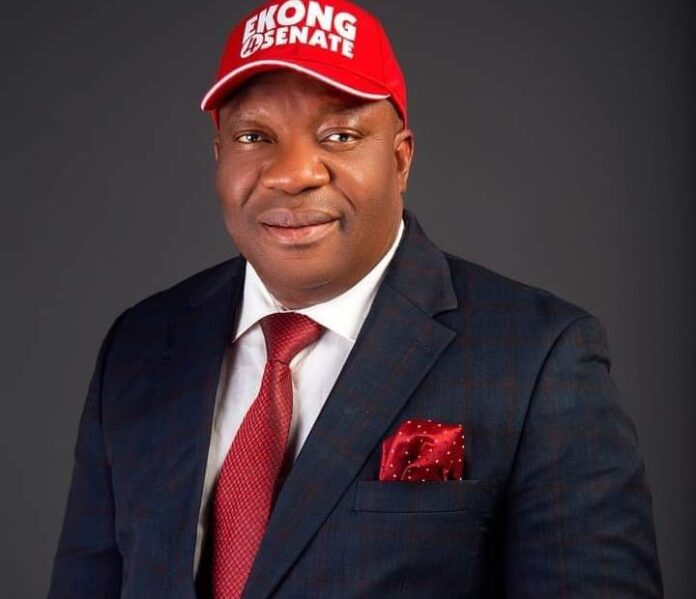Senator Ekong Sampson, representing Akwa Ibom South, electrified the Senate on Wednesday when he declared that “ghosts don’t rig elections,” stressing that electoral malpractices are carried out by real individuals who must be held accountable to deepen public confidence and safeguard democracy.
Sampson, a celebrated author and poet, read excerpts from two of his poems — Masks and The Returning Officer — to lament the persistent rot in Nigeria’s electoral system. A consistent advocate for electoral integrity, the lawmaker reiterated his long-held belief that democracy can only thrive when elections reflect the people’s true will.
Speaking during the consideration of a Bill to repeal and reenact the Electoral Act, sponsored by Senator Simon Lalong (APC, Plateau South), Sampson underscored the urgency of reforming Nigeria’s electoral process. He described the proposed amendment as one of the most consequential pieces of legislation before the 10th Senate.
According to him, strengthening institutions and restoring citizens’ trust in the system are vital to ending the cycle of electoral fraud. Drawing from his experience, he recalled how he once won election into the Akwa Ibom State House of Assembly “from Uyo Prisons,” a testament, he said, to the invincibility of the people’s will.
Sampson — who chairs the Senate Committee on Solid Minerals — wove his poetic sensibilities into his contribution, quoting lines such as “The Field/Or what looks like/The Field” and “The Election Result/Or what looks like/The Election Result…” from his poems. He called for “the true field” during elections, not its manipulative imitation.
He urged lawmakers to fill the gaps in the Electoral Act, enforce sanctions against offenders, and approach politics as trustees of the people’s mandate.
Other contributors to the debate, including Senators Orji Uzor Kalu, Adams Oshiomhole, Seriake Dickson, Adamu Aliero, and Musa Maidoki, endorsed the Bill’s reform goals.
In his closing remarks, Senate President Godswill Akpabio emphasised the need for transparency and improvement in INEC’s operations. The Bill was referred to the Committee on Electoral Matters for further consideration, with a report expected in two weeks.

